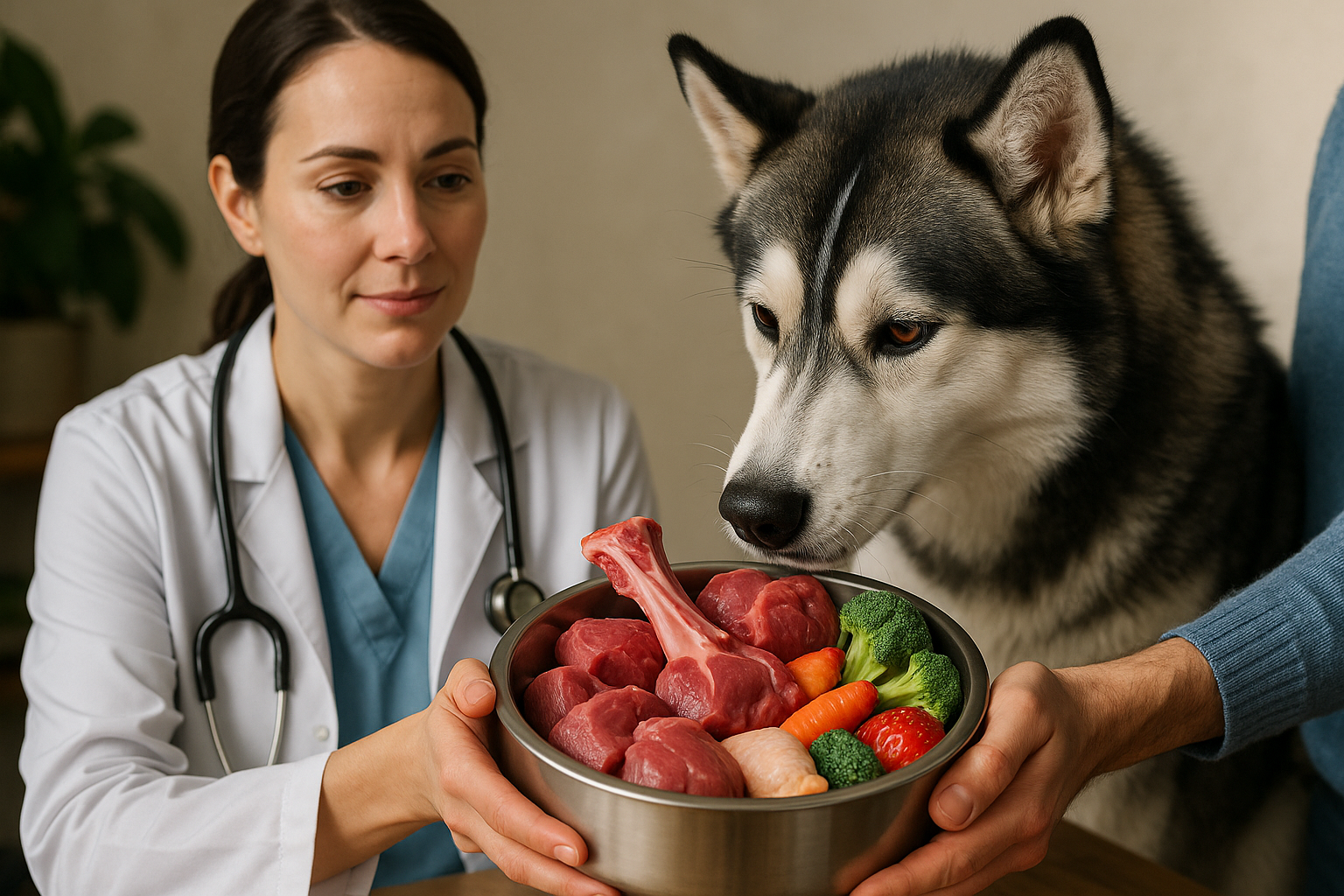Harmful Foods Dogs Must Avoid in United States in 2025
Did you know many everyday foods can be harmful to dogs? This article provides information about common human foods that may pose health risks to dogs. It explains the potential dangers and symptoms associated with these foods to help you better understand how to protect your dog.

Chocolate and Chocolate-Flavored Products
Chocolate is one of the most well-known toxic foods for dogs. It contains methylxanthines—primarily theobromine and caffeine—which dogs cannot metabolize effectively. The toxicity level depends on the type of chocolate:
- Dark chocolate and baking chocolate contain the highest concentrations and are the most dangerous.
- Milk chocolate is less toxic but still unsafe.
- White chocolate has the lowest methylxanthine levels but should still be avoided.
- Chocolate-flavored baked goods, cocoa powder, and candy also pose risks.
Symptoms of chocolate poisoning can appear within hours and include vomiting, diarrhea, excessive thirst and urination, hyperactivity, tremors, seizures, abnormal heart rhythms, and, in severe cases, death. If a dog consumes any form of chocolate, contacting a veterinarian immediately is recommended, providing information about the type and quantity.
Grapes, Raisins, Currants, and Sultanas
Grapes and their dried forms such as raisins, currants, and sultanas are considered toxic to dogs and can lead to acute kidney failure in some cases. Toxicity levels vary between individual dogs, and there is no established safe amount. These fruits often appear in baked goods like fruit cakes.
Signs of poisoning may include vomiting, lethargy, abdominal pain, loss of appetite, and potential kidney issues. Because even small amounts could be harmful, avoiding these fruits is advised. If ingestion is suspected, consultation with a veterinarian is important.
Xylitol (Artificial Sweetener)
Xylitol is a common artificial sweetener found in many sugar-free items, including chewing gum, candies, some peanut butters, baked goods, and dental products such as toothpaste and mouthwash.
In dogs, xylitol may cause a rapid release of insulin, leading to low blood sugar and potential liver issues.
Symptoms can include tremors, seizures, weakness, and in serious cases, coma. Because xylitol is present in many everyday items, checking ingredient lists and seeking veterinary attention promptly if ingestion occurs is recommended.
Onions, Garlic, Leeks, and Chives
All forms of these vegetables, including powders commonly found in gravies, seasoning mixes, and processed foods, can cause oxidative damage to red blood cells, potentially leading to hemolytic anemia in dogs.
Toxicity generally requires larger quantities, but sensitivity varies among individual dogs.
Symptoms include weakness, vomiting, diarrhea, abdominal pain, pale gums, and lethargy. Avoid feeding any foods containing these ingredients, and consult a veterinarian if ingestion is suspected.
Alcohol and Ethanol-Containing Products
Alcoholic beverages and food products containing alcohol can be harmful to dogs, potentially causing vomiting, disorientation, difficulty breathing, tremors, coma, and other severe symptoms.
Raw yeast dough also carries risks due to internal ethanol production during fermentation, which can cause alcohol poisoning and possible life-threatening stomach issues.
Keeping alcoholic drinks and raw doughs out of dogs’ reach and seeking urgent veterinary care if exposure occurs is advised.
Macadamia Nuts
Even small quantities of macadamia nuts have been reported to cause neurological and gastrointestinal symptoms such as vomiting, diarrhea, muscle tremors, weakness, uncoordinated movements (wobbliness), and elevated body temperature. While rarely fatal, ingestion can cause discomfort and should be taken seriously.
Veterinary advice is recommended if a dog consumes macadamia nuts.
Cooked and Raw Bones
Bones, whether cooked or raw, carry risks such as:
- Tooth fractures
- Choking hazards
- Intestinal blockages
- Perforations in the gastrointestinal tract, which may require surgery
Feeding dogs leftover bones like chicken drumsticks is discouraged. Consult your veterinarian for appropriate chew items and safety guidelines.
Dairy Products (Milk, Cheese, Yogurt)
Many dogs are lactose intolerant to varying degrees due to low levels of the lactase enzyme. Dairy products can cause digestive upset, including diarrhea, bloating, and gas.
Limiting or avoiding milk, cheese, yogurt, and other dairy-based foods can help prevent gastrointestinal distress. Dairy products should not be primary treats for dogs.
Corn on the Cob
While dogs can digest corn kernels, swallowing the corn cob itself may lead to serious intestinal blockages that require emergency surgery.
Avoid allowing dogs access to corn cobs or foods containing them.
Salty Foods
Excess salt intake can lead to salt poisoning, especially in dogs with pre-existing heart, kidney, or neurological conditions, such as epilepsy.
Symptoms of salt poisoning can be serious and may require emergency intervention. Keep salty snacks, including homemade salt dough, away from pets.
Summary and Preventive Tips
- Keep harmful foods and substances out of dogs’ reach.
- Read ingredient labels carefully before offering any human foods.
- If your dog ingests any potentially toxic food—even in small amounts—consult a veterinarian promptly.
- Use only veterinarian-approved treats and dog food.
- Educate all household members and visitors on the risks of feeding dogs unsuitable foods.
- Monitor your dog’s behavior and health following potential exposure to harmful substances.
Being informed about these foods and responding quickly if ingestion occurs can help support your dog’s health and safety.
Sources
- ASPCA People Foods to Avoid Feeding Your Pets
- The Vets - Toxic Foods for Dogs
- Dogs Trust - Toxic Foods
Disclaimer: All content, including text, graphics, images and information, contained on or available through this web site is for general information purposes only. The information and materials contained in these pages and the terms, conditions and descriptions that appear, are subject to change without notice.




